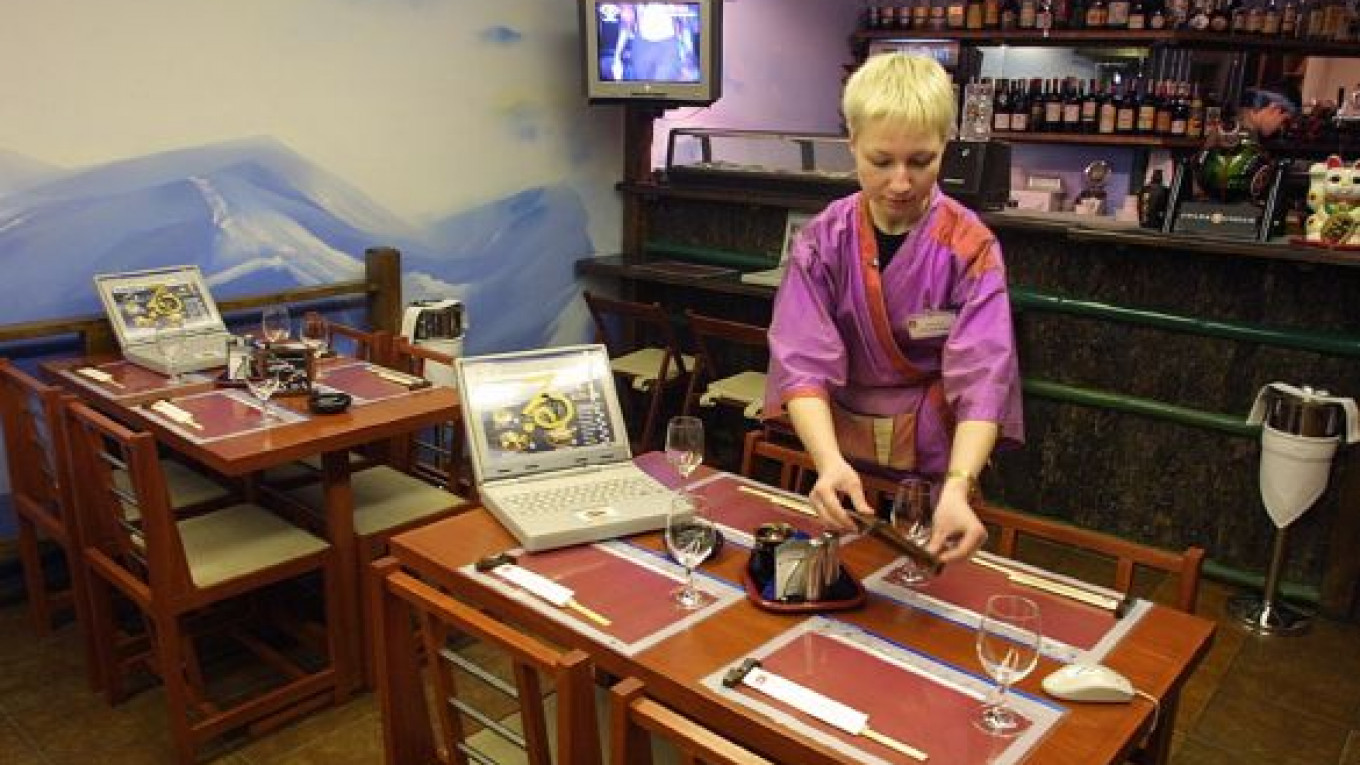Making money from social networks is the holy grail for tech startups, and a Moscow firm reckons it has found a way to do so by creating a front-to-back restaurant management system that includes a loyalty scheme.
In his day job, David Yang runs ABBYY, which specializes in linguistic recognition and translation software. But, as a passionate restaurateur, he has spotted an opportunity created by social networks such as Facebook and Foursquare.
The result is iiko (en.iiko.ru), an integrated system that handles orders, inventory, finance and security. It also runs a loyalty scheme geared to the fad for location-based networking.
"Loyal guests are better motivated because if they publish a recommendation on their wall and their friends come, the recommender receives part of their spending [as a discount]," Yang said at ArteFAQ, one of his trendy restaurants.
"His or her friends will also receive free wine, free burgers, free mojitos," said the Armenian-born Yang, whose father came from China to the Soviet Union to study physics only to be stranded by the Cultural Revolution.
If that's not enough, iikoDJ can play the right music, at the right volume, at the right time of day or night.
"During the day you should change the volume and in different rooms have different music playing," Yang said. "But people in the restaurants don't usually care, they don't switch music, they don't switch volume or, even worse, they put on their own music."
Yang expects iiko, which was founded in 2005 and received an investment from Troika Dialog in 2008, to generate $50 million in revenues by 2015 through one-off sales or service contracts, topped up by 1 percent to 2 percent of collections.
The system is already working in 1,400 restaurants and cafes, including the Russian operations of Dunkin' Donuts and Sbarro. Yang plans to take iiko international and reach 40,000 sites by mid-decade.
Yang was a student at the Moscow Institute of Physics and Technology in 1989 when he went into business with fellow student Alexander Moskalyov, getting a loan from a fund set up by President Mikhail Gorbachev to back young entrepreneurs.
"It was like an incubator. They believed …" Yang said.
ABBYY now sells text-recognition software FineReader — capable of reading handwritten medieval texts — and electronic dictionary Lingvo. It employs 1,000 people, has 13 offices in nine countries and 30 million customers.
ABBYY, in which Swedish-Russian fund Mint Capital took a minority stake in the early 2000s, is not considering joining the rush by tech firms to list despite success stories such as Internet search firm Yandex, which raised $1.4 billion on NASDAQ.
But Yang, whom the Expert RA agency ranked as Russia's No. 4 tech entrepreneur with estimated sales of $146 million, is keeping his options open.
"We are facing interest all the time from financial and strategic investors," he said. "We are exploring the organic and non-organic growth of the company. But we don't have exact plans."
A Message from The Moscow Times:
Dear readers,
We are facing unprecedented challenges. Russia's Prosecutor General's Office has designated The Moscow Times as an "undesirable" organization, criminalizing our work and putting our staff at risk of prosecution. This follows our earlier unjust labeling as a "foreign agent."
These actions are direct attempts to silence independent journalism in Russia. The authorities claim our work "discredits the decisions of the Russian leadership." We see things differently: we strive to provide accurate, unbiased reporting on Russia.
We, the journalists of The Moscow Times, refuse to be silenced. But to continue our work, we need your help.
Your support, no matter how small, makes a world of difference. If you can, please support us monthly starting from just $2. It's quick to set up, and every contribution makes a significant impact.
By supporting The Moscow Times, you're defending open, independent journalism in the face of repression. Thank you for standing with us.
Remind me later.






